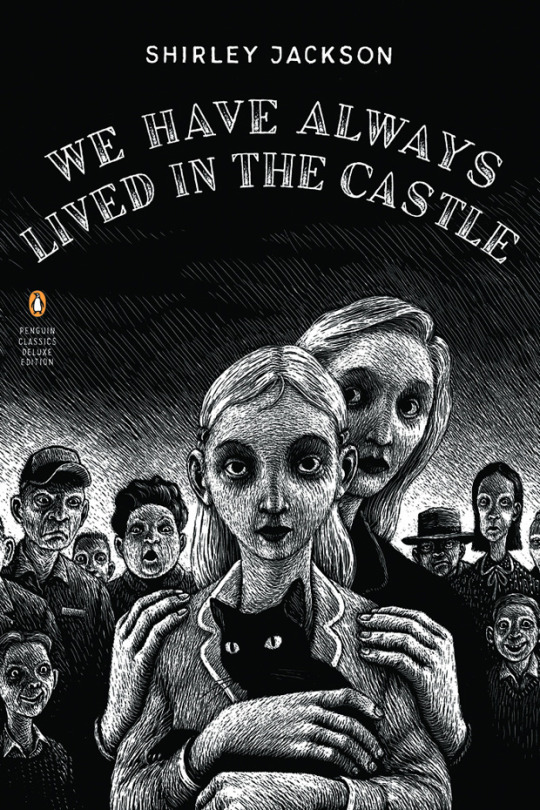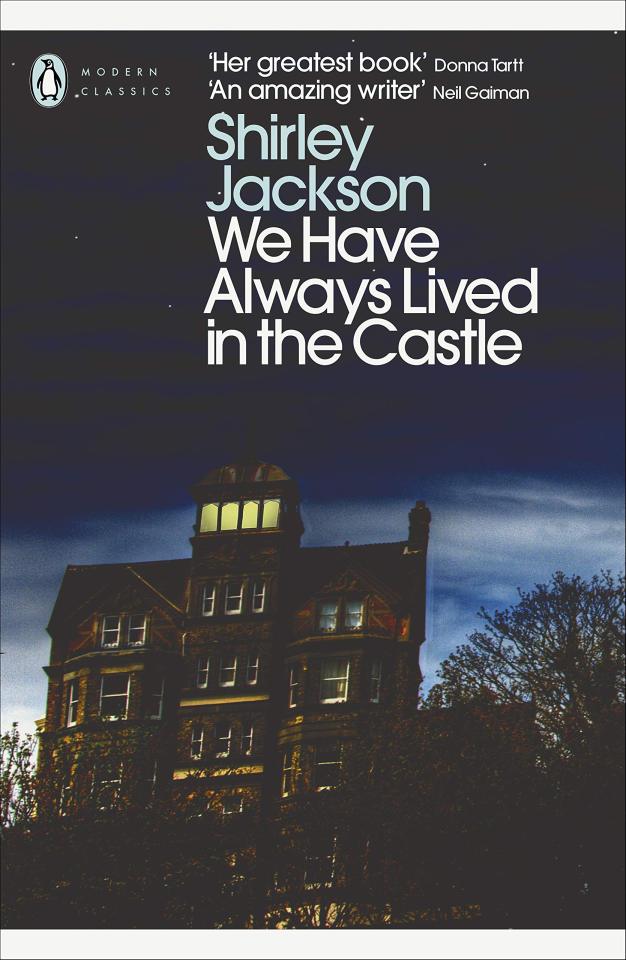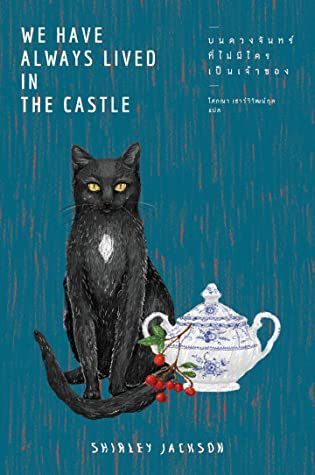All of Mediaeval-Muse's book reviews and bookish reblogs go here.
Don't wanna be here? Send us removal request.
Text
"We cannot possibly at the State Library save our way out of an $8 million hole,” said California State Librarian Greg Lucas....
209 notes
·
View notes
Text

Still Life - French Novels and Rose (1888) by Vincent van Gogh
908 notes
·
View notes
Text
Enough about favorite books. What’s a book you read and absolutely hated? The book you’ve got a bone to pick with.
#the warded man#it had so much sexual assault and racism i was about to throw it at the wall#I've rated books pretty low based on craft alone#but this one i rated low for actual content
17K notes
·
View notes
Text

The God of the Woods. By Liz Moore. Riverhead, 2024.
Rating: 4.25/5 stars
Genre: mystery
Series: N/A
Summary: When Barbara Van Laar is discovered missing from her summer camp bunk one morning in August 1975, it triggers a panicked, terrified search. Losing a camper is a horrific tragedy under any circumstances, but Barbara isn’t just any camper; she’s the daughter of the wealthy family that owns the camp — as well as the opulent nearby estate and most of the land in sight. And this isn’t the first time a Van Laar child has disappeared in this region: Barbara’s older brother also went missing fourteen years ago, never to be found. How could this have happened yet again?
Out of this gripping beginning, Liz Moore weaves a richly textured drama, both emotionally nuanced and propelled by a double-barreled mystery. Chasing down the layered secrets of the Van Laar family and the community working in its shadow, Moore’s multi-threaded drama brings readers into the hearts of characters whose lives are forever changed by this eventful summer.
***Full review below.***
CONTENT WARNINGS: alcohol, depression, grief, child endangerment, drug use, animal death, domestic violence, child neglect, blood
OVERVIEW: I don't remember why I decided to pick up this book as I was only mildly curious about it, but I'm glad I did. It was a much more engaging read than I was anticipating, and I found the character work and arc of the narrative to be satisfying. If you're a fan of mysteries that unfold slowly and have underlying critiques of people in power, I would recommend giving this a try.
WRITING: Moore's prose is deceptively simple in construction. It doesn't use much figurative language, so everything feels very straight-forward. But Moore does a good job balancing showing and telling while also mastering pace. Some sentences are short and fragmented, which speeds up the pace when needed. Others are longer so as to give the reader a sense of the atmosphere or linger on important emotions.
This book also jumps around in time and has multiple character POVs. For some, this structure may be disorienting. Personally, though, I found it engaging. I enjoyed seeing how past and present flowed into one another, and I think Moore chose her POV characters well so as not to make any perspective redundant.
Lastly, I think Moore excelled at creating atmosphere. This book primarily takes place on a forest preservation, and Moore created a setting that felt vaguely threatening yet also mysterious. The woods are a dangerous place and this book emphasizes that without being too overwhelming.
PLOT: The plot of the book centers on the disappearance of Barbara Van Laar, the daughter of the wealthy family who owns a preserve in the Adirondaks. The year is 1975 and Barbara disappears from summer camp, which is held on the preserve. As investigators search for her, they begin digging into the 1961 disappearance of 8 year old Bear, from the same family.
This mystery was incredibly satisfying in part because Moore feeds us little clues that feel "off." I was never quite sure what details would be relevant to which case, and some details were more relevant to uncovering just how self-serving rich, influential people could be.
I also really enjoyed the character work and the way Moore lingers on their backstories. Getting to know how each character intimately made this book feel partially like literary fiction, but it also made me care about each perspective and want to know how they were all connected.
When we finally do learn what happened, I found the resolution to be surprisingly satisfactory. Part of my fear when reading mystery is that the resolution will pale in comparison to the suspense of the investigation, but in this case, I think Moore did it well. Part of the reason might be because every aspect of the mystery ties in with specific themes: about the land, about class, about the follies of the rich and powerful. I enjoyed the slow unfolding of the plot and the way it explored these topics, so the mystery was actually commenting on something rather than just trying to be an empty thrill.
CHARACTERS: There are way too many characters to discuss individually, so I'll just provide a brief overview.
I think Moore did a good job of selecting her POV characters. We get a range of people of different ages and classes throughout time so no two perspectives feel redundant. Moreover, each POV character feels sufficiently complex with varying home lives, hopes, goals, and struggles, though all feel like they are tied together and relate to the themes of the novel.
TL;DR: The God of the Woods is a compelling mystery that foregrounds character work, allowing the plot to unfold slowly and with mounting suspense. Because it also critiques the way the rich and powerful operate, this book is satisfying on multiple levels and I recommend it for readers who enjoy good atmosphere and a reflective look at class.
1 note
·
View note
Note
Have you heard of I Have No Mouth And I Must Scream? If you have, do you like it?
Have I heard of one of the seminal pieces of New Wave science fiction? Yes, I have. Do I like it...?
Huh. What a question. Do I like it?
I guess the answer is no, not really. Or at least, I didn't enjoy the experience of reading it: it's heavily locked into a lot of the cultural and sociological outlooks of the 60s and 70s that I find kind of repugnant and while some of what goes down is gross in a way I love to read, a lot of it is gross in a way I really don't.
So I don't like it. But that's one reason why I'm really glad I read it. Only reading and engaging with things you like it eventually leaves your brain a bit mushed. Sometimes you need something to wrestle with, something unpleasant you can sit with in discomfort. And I don't mean "hate-reading" or going in looking for reasons to tear something down - I mean good faith engagement with art that you don't like. Because I always find that people are so quick to ask "what's wrong with this?" they fail to ask what I think is a more compelling question: "what value can I find in here, what is there that's interesting?"
And to be fair that's a very easy task with I Have No Mouth. Harlan Ellison is a great writer tackling some fascinating questions and its an influential enough work that it puts a lot of later sci-fi (that I often enjoy more) into context. Plus I love an evil computer and AM is the absolute GOAT.
And obviously there's no shame in tapping out of a piece of art if you're genuinely finding it too unpleasant to get through, but I'm always in favour of good faith engagement with art you don't like. It keeps the fire hot for the inspiration soup.
2K notes
·
View notes
Photo








We Have Always Lived in the Castle by Shirley Jackson: English covers
8K notes
·
View notes
Text
on this day in 1953 shirley jackson sent this to an unhappy reader

12K notes
·
View notes
Text
Despite what some adults seem to think, teenagers are fully human. And some of them read as intensely and keenly as if their life depended on it. Sometimes maybe it does.
Ursula K. Le Guin, A Wizard of Earthsea's postface
2K notes
·
View notes
Photo

If that’s still not enough bookplate for you, check out “Ex Libris: The Art of Bookplates” by Martin Hopkinson. [source]
1K notes
·
View notes
Text
Ok, real quick, speaking as a librarian, you absolutely cannot despair about the adult literacy crisis and shame adults for reading fiction books you do not personally care for or think are "challenging" at the same time. It doesn't work with kids, and it doesn't work with adults.
Here's how to increase someone's reading level:
1) Let them read whatever they choose without shame or judgment. Maybe get them talking about it using open-ended, non-leading questions to encourage critical thinking and comprehension.
2) Let them get bored after a while and seek out different books.
3) Repeat.
31K notes
·
View notes
Text

Held. By Anne Michaels. McClelland and Stewart, 2023.
Rating: 4/5 stars
Genre: literary fiction, historical fiction
Series: N/A
Summary: 1917. On a battlefield near the River Escaut, John lies in the aftermath of a blast, unable to move or feel his legs. Struggling to focus his thoughts, he is lost to memory - a chance encounter in a pub by a railway, a hot bath with his lover on a winter night, his childhood on a faraway coast - as the snow falls. 1920. John has returned from war to North Yorkshire, near another river - alive, but not still whole. Reunited with Helena, an artist, he reopens his photography business and endeavours to keep on living. But the past erupts insistently into the present, as ghosts begin to surface in his pictures: ghosts whose messages he cannot understand. So begins a narrative that spans four generations, moments of connection and consequence igniting and re-igniting as the century unfolds.
***Full review below.***
CONTENT WARNINGS: implied suicide, child death, war
OVERVIEW: This book was on a list of best reads of 2024, and the premise was interesting enough that I bought a copy. I'm usually intrigued by Booker Prize candidates, so I was eager to see what this book would do with form. Overall, I loved the writing and the interweaving of narratives, and I loved the focus on death and longing. My rating, therefore, reflects how difficult it could be for me personally to retain some details or discern what what happening.
WRITING: Michaels's prose is very lyrical and philosophical, delivered in relatively short sections that hit you with something and then retreat. I enjoyed the flow of the sentences and the ideas together, and the language was really quite lovely.
I do think, however, it was a little difficult at times to know what was going on or how time was passing. That may be on my more than the author, however.
PLOT: There's not really a strong plot in this book; it's more like a series of snapshots that bleed into one another, like the ghosts in the photographs in the second section.
Each section grapples in some capacity with loss and longing. I found them compelling and incredibly moving, and Michaels is very skilled at creating the feeling of longing with scenes of absence.
The structure of the book left me wanting a little more from these snapshots, but perhaps that was the point. This book is all about knowing something through its absence, and cutting the narrative into short pieces leaves room for the reader to reflect on those gaps.
CHARACTERS: There isn't quite a sense of strong character development, nor is there really a protagonist. But the characters themselves are compelling and about as complex as they need to be.
TL;DR: Held is a fascinating look at memory, grief, absence, and longing, told through short, lyrical paragraphs that tales us backwards and forwards in time. The structure can be a bit disorienting, but if you enjoy literary fiction, you will probably appreciate what Michaels is doing.
1 note
·
View note
Text

Uncultured. By Daniella Mestyanek Young. St. Martin's, 2022.
Rating: 3.75/5 stars
Genre: memoir
Series: N/A
Summary: Behind the tall, foreboding gates of a commune in Brazil, Daniella Mestyanek Young was raised in the religious cult The Children of God, also known as The Family, as the daughter of high-ranking members. Her great-grandmother donated land for one of The Family’s first communes in Texas. Her mother, at thirteen, was forced to marry the leader and served as his secretary for many years. Beholden to The Family’s strict rules, Daniella suffers physical, emotional, and sexual abuse—masked as godly discipline and divine love—and is forbidden from getting a traditional education.
At fifteen years old, fed up with The Family and determined to build a better and freer life for herself, Daniella escapes to Texas. There, she bravely enrolls herself in high school and excels, later graduating as valedictorian of her college class, then electing to join the military to begin a career as an intelligence officer, where she believes she will finally belong.
But she soon learns that her new world—surrounded by men on the sands of Afghanistan—looks remarkably similar to the one she desperately tried to leave behind.
***Full review below.***
CONTENT WARNINGS: child abuse, sexual abuse, rape, suicidal ideation, self harm, injury detail, blood, sexism, racism, death
I think I first learned of this book a while ago via a podcast, but then I happened to stumble on Young's YouTube shorts and remembered she had a book out. So I bought a copy.
I find it difficult to rate memoirs because I don't necessarily want to evaluate someone's lived experiences. My rating is thus not a reflection of how useful or entertaining Young's story is, but more geared towards the writing aspect.
In terms of content, I think Uncultured provides a compelling look into the life of someone raised in the Children of God. Young is very good about not dwelling on the details that fuel true crime or similar genres; by that, I mean she doesn't go into the most horrid of details for the sake of entertainment. Most of the focus is on her experience and how growing up in the cult affected her, which functions as a powerful survivor story.
The strongest parts of this memoir were the moments when Young drew parallels between her experience in the military and her experiences growing up. Thinking about the book as a whole as not just a story about the Children of God, but how people form groups and exert control, is very useful and insightful.
Still, I think that aspect could have been pushed. Uncultured reads like a play-by-play of the author's life, which is fine, but I think the message of the memoir could have landed better by cutting some of the details that didn't matter as much and replacing them with more present-day hindsight. More passages about how coercive control works, how trauma functions, etc would have connected more dots for the reader and would have been a stronger through-line from the Children of God to the US military.
I also just wasn't the biggest fan of the prose itself. It's fine, don't get me wrong. It has a few heart-wrenching passages and some statements that stand out. But taken as a whole, it's fairly uniform in pace and doesn't quite dazzle.
TL;DR: Uncultured is notable for the parallels it draws between the Children of God and the US military, but the structure and prose could have done more to support the main themes of the book.
2 notes
·
View notes




